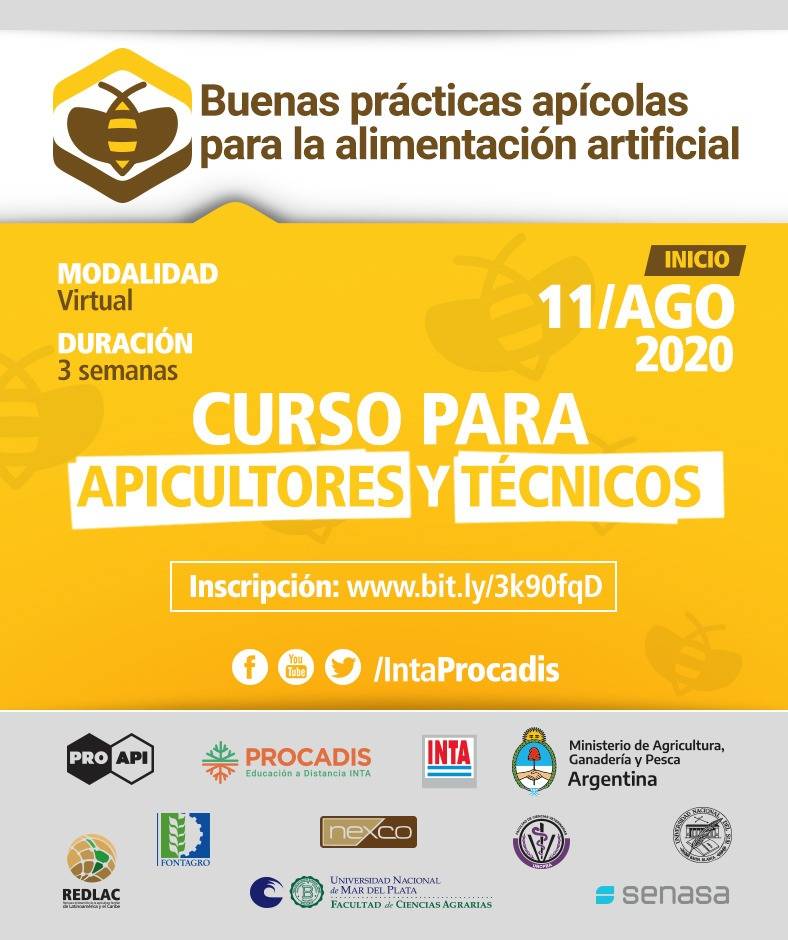The central purpose of the course is to help consolidate the position of Argentine honey in the international market, adjusting feeding practices to sustain the recognition of its high quality in the most demanding markets.

This course aims to identify the problem of adulterated honey in international trade and to be able to think of differentiation strategies that highlight the added value of our honey. And it aims to identify the problem in the framework of the international honey trade. Know the nutritional requirements of bees; identify natural and artificial power sources; know the consequences of nutritional deficiencies; define the need to use Strategic Food; assess the importance of applying Good Beekeeping Practices in artificial feeding; generate their own and community awareness of applying these practices to preserve the quality of honey and obtain the best possible prices; value the Argentine traceability system as an advantage to position honey in the international market; have the management tools to transform a problem into an opportunity for the sector.

It is aimed at beekeepers with extensive experience and technicians related to beekeeping and registration is open in MOOC INTA PROCADIS, INTA PROAPI, SENASA, REDLAC, FONTAGRO, National University of Mar del Plata - Faculty of Agricultural Sciences of Balcarce, the University National Center of the province of Buenos Aires - Faculty of Veterinary Sciences, National University of the South - Department of Agronomy, and NEXCO SA. The course begins on August 11 on the INTA PROCADIS MOOC platform.




